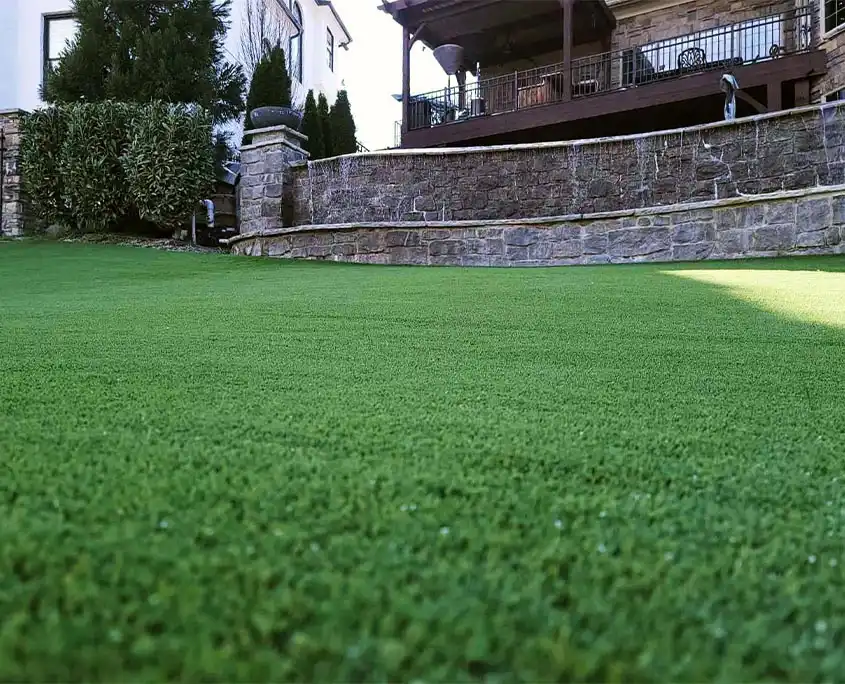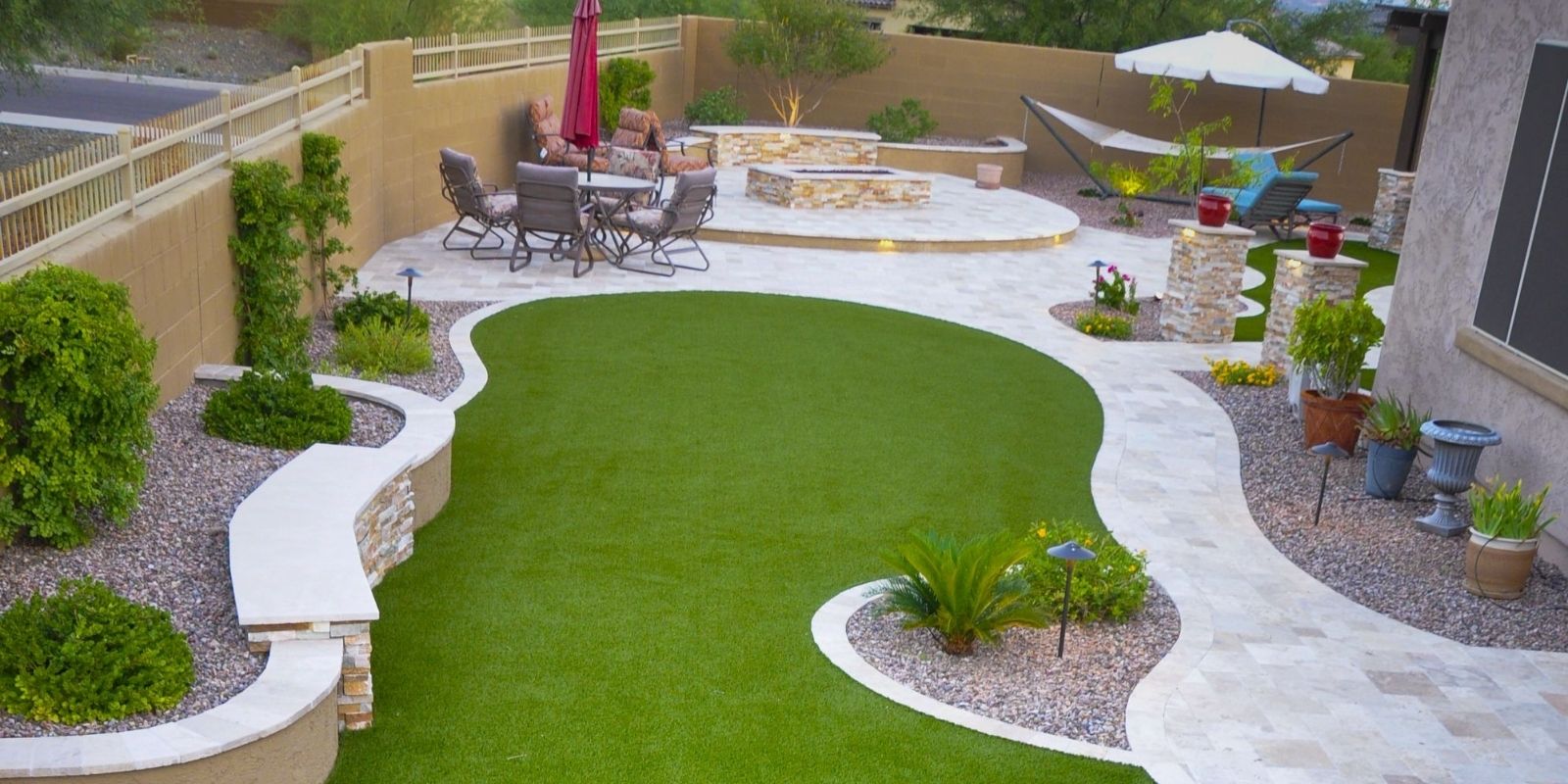Find Trusted Artificial Turf Companies Phoenix for High-Quality and Realistic Grass
Find Trusted Artificial Turf Companies Phoenix for High-Quality and Realistic Grass
Blog Article
Delve Into the Environmental Benefits of Opting for Synthetic Grass Solutions
The adoption of fabricated grass services presents an engaging opportunity to deal with pushing ecological challenges. By considerably lowering water use and reducing the application of unsafe chemicals, these alternatives not only promote lasting landscape design yet additionally protect regional ecological communities.
Water Preservation Benefits
One of the most significant advantages of synthetic grass is its capability to save water. Standard lawn yards call for considerable watering, particularly in areas susceptible to drought or water limitations. On the other hand, man-made grass does not need watering, substantially decreasing the general demand for water resources. This attribute is specifically beneficial in dry areas where water shortage is a pressing concern.
By getting rid of the need for routine watering, fabricated turf contributes to lasting landscape techniques and helps alleviate the ecological impact of extreme water intake. The preservation of water expands to the decrease of drainage, which can lead to soil erosion and waterway pollution.
Furthermore, the setup of synthetic grass permits house owners and communities to allot water sources extra successfully, concentrating on important uses such as drinking water and agriculture. The change in the direction of artificial turf not only advertises responsible water use yet additionally straightens with more comprehensive environmental goals aimed at preserving natural sources.
As areas significantly focus on sustainability, the water conservation advantages of man-made lawn provide an engaging case for its adoption in business and property landscape design tasks.
Lowered Chemical Use
The shift to synthetic grass dramatically lowers the reliance on chemical treatments generally utilized in natural yard maintenance. Traditional lawn administration usually involves the application of fertilizers, pesticides, and herbicides to promote development and control bugs. These chemicals can pose dangers to human health, regional wildlife, and the atmosphere, adding to soil and water contamination.
In comparison, synthetic turf removes the requirement for these hazardous materials. Once set up, it requires very little maintenance, primarily containing normal cleaning and infrequent infill replenishment. This decrease in chemical use not only benefits the prompt atmosphere however likewise adds to wider ecological stability. By lessening the release of artificial compounds right into the ecological community, synthetic grass advertises much healthier soil and water systems.
Furthermore, the absence of chemical overflow connected with synthetic grass installments aids protect local waterways from pollution, sustaining marine life and keeping biodiversity. Turf installation phoenix az. As communities increasingly prioritize lasting techniques, selecting synthetic grass provides a practical solution that aligns with ecological preservation goals. Via this shift, building proprietors can delight in lavish green rooms without jeopardizing environmental wellness, leading the way for a more lasting future
Lower Carbon Footprint

Furthermore, the setup of fabricated turf can result in considerable water preservation. Natural lawns need significant quantities of water for watering, which not only includes in the carbon footprint connected with water removal and therapy yet also stress regional water sources. In comparison, synthetic grass needs very little upkeep, calling for no watering, thereby considerably minimizing water use and its linked power prices.
In addition, the long life of synthetic grass adds to its reduced carbon impact. With a lifespan of up to 15 years or more, the need for frequent replacements is diminished, resulting in less waste and reduced power usage in manufacturing and taking care of typical yard choices. On the whole, synthetic grass provides a sustainable option for environmentally aware landscape design.
Habitat Preservation
Environment conservation is a vital consideration in the debate over landscape design options, particularly when contrasting fabricated grass to natural yard. Natural grass yards usually need extensive maintenance, including using plant foods, herbicides, and pesticides, which can detrimentally affect local ecosystems. These chemicals can seep into the dirt and waterways, hurting native plants and animals and interrupting neighborhood habitats.
In comparison, man-made lawn provides a possibility to decrease the eco-friendly footprint of landscaping. By choosing synthetic turf, home owners can reduce the disturbance of natural habitats connected with traditional yard treatment practices. Man-made lawn eliminates the requirement for unsafe chemicals, thus shielding nearby wildlife and preserving the stability of bordering ecological communities. The setup of man-made grass can lead to the conversion of former turf areas right into even more biodiverse landscapes, such as pollinator yards or indigenous plant areas, which can support regional wildlife.
Eventually, the transition to synthetic grass not just preserves water and minimizes maintenance efforts yet likewise fosters a more unified connection between human tasks and the natural surroundings, promoting environment conservation while doing so.
Long-Term Sustainability
Long-term sustainability is an essential consider examining the advantages of artificial lawn over conventional grass yards. One of the most substantial benefits of man-made lawn is its toughness; it can last as much as 15-20 years with marginal maintenance, whereas this page all-natural turf calls read here for regular reseeding and substitute. This longevity lowers the need for consistent resources, such as water, fertilizers, and chemicals, which are vital for keeping a healthy yard lawn.
Furthermore, synthetic grass adds to a reduction in carbon discharges connected with lawn treatment tools. Conventional yards often need gas-powered lawn mowers, leaners, and blowers, all of which add to air contamination. Phoenix turf companies. In comparison, synthetic grass gets rid of the demand for such equipment, promoting a cleaner atmosphere
In addition, the production of synthetic grass significantly utilizes recycled materials, enhancing its sustainability profile. As makers take on environmentally friendly methods, the ecological impact of synthetic grass proceeds to lessen.

Final Thought
The fostering of synthetic grass options provides considerable ecological advantages, including substantial water conservation, reduced reliance on hazardous chemicals, and a lower carbon footprint. Furthermore, artificial lawn help in protecting natural habitats by minimizing land disruption and advertising long-lasting sustainability through the use of sturdy products. Jointly, these elements underscore the possibility of synthetic grass to add positively to ecological health and wellness and provide a viable choice to conventional landscape design methods in a progressively resource-conscious world.
In comparison, synthetic lawn does not need watering, significantly minimizing the overall need for water sources. By lessening the release of artificial substances right into the ecological community, synthetic grass promotes healthier soil and water systems.
In addition, the setup of fabricated grass can result in considerable water preservation. In a fantastic read comparison, man-made lawn needs minimal upkeep, calling for no watering, consequently substantially reducing water usage and its connected energy expenses.

Report this page